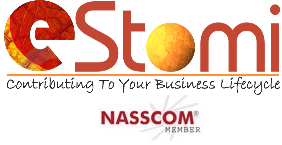WHAT ISSUES DOES ITIL SOLVE?
If we can answer this question, we have a basis from which to proceed, a framework within which negative perceptions can be challenged, and a general approach for relating ITIL to any specific new and emerging technologies. I want to be able to explain the problems that ITIL solves using the language other than that which ITIL uses to explain itself. ITIL language can be difficult. For example, ITIL’s definition of service shifts and changes at crucial points throughout the volumes of the library: sometimes it’s a specific service (payroll) and sometimes it’s a service provider’s total offering. In general, ITIL language isn’t plain enough.
So, without further delay, here are some of the specific problems which I think ITIL solves. Increasing revenue, reducing waste and costs, and delivering more value. And I would like to add on one more that is “managing risk”
THE PROBLEMS ITIL SOLVES
To make the long list easier to digest, I’ve split it into two: internal IT problems and business problems.
Internal IT problems:
- How can we all get on the same page, speaking the same language, so that we can be more effective?
- Who is accountable for what? We need to define clear roles and responsibilities.
- Our processes are incredibly complex. It’s difficult to keep a clear window of things. We need to make their interactions clearer.
- We do lots of stuff, and we get lots of outcomes. It’s hard to see the connections between the two. What parts of what we are doing work, and which parts don’t?
- Did we do better this month than last month?
- What organizations mean with “we do it better”?
- We need to be able to manage our interactions with the business across the whole IT lifecycle.
- We need to be able to explain what value we give to the business. In general, answers like “We manage 2,000 widgets” don’t work – we need to talk about the services we provide in a more meaningful way.
- How can we understand where to invest in with the IT budget?
- How do we know if our investments have a reasonable return?
- How can we plan for future business demand?
- How can we deliver changes effectively and efficiently without tying ourselves to a single change framework?
- When things go wrong, how can we minimize the negative impacts?
- When things go wrong, how can we learn and prevent the same things happening again?
Business problems:
- We want to invest in IT. We see its value for the organization, but we want someone else to manage the technical details effectively.
- We want to invest in IT. We see its value for the organization, but we want someone else to manage the detailed risks involved in it.
- We want IT to deliver business changes quickly and reliably.
- We want to know how our investments in IT are doing.
- We want to know if we could get a better, faster, and risk-optimized return on our investments in IT.
- When things go wrong, we want negative impacts minimized.
- When things go wrong, we want to learn and prevent the same thing from happening again.
If I’m right that these are the problems that ITIL solves (or can solve) then it’s a rock-solid foundation for challenging negative perceptions. if these are the problems that ITIL solves, then it’s a framework that delivers a series of concepts, actions, and outcomes that work at a layer above the technology.
We at eStomi bring in the excellence of providing you a suitable training in ITIL which answers all your queries and develops your skills. Hence, such issues seem to be minimizing once your grasp a hands-on knowledge of ITIL. “Time is money” a well-known saying but I would like to end with that Money is everything when You are an individual working, especially in an IT sector it is very crucial that ITIL learning is in your Skills list.
Not just being limited to the IT sector. I think every individual who wants to be work with a systematic and professionally valued approach. For a better knowledge highlighting the latest statistics, the need for ITIL professionals is growing in many industries such as healthcare and Higher education sector.
For more information on service details, contact
Visit us online: Connect@eStomi.net
Call: +91 9740922224
